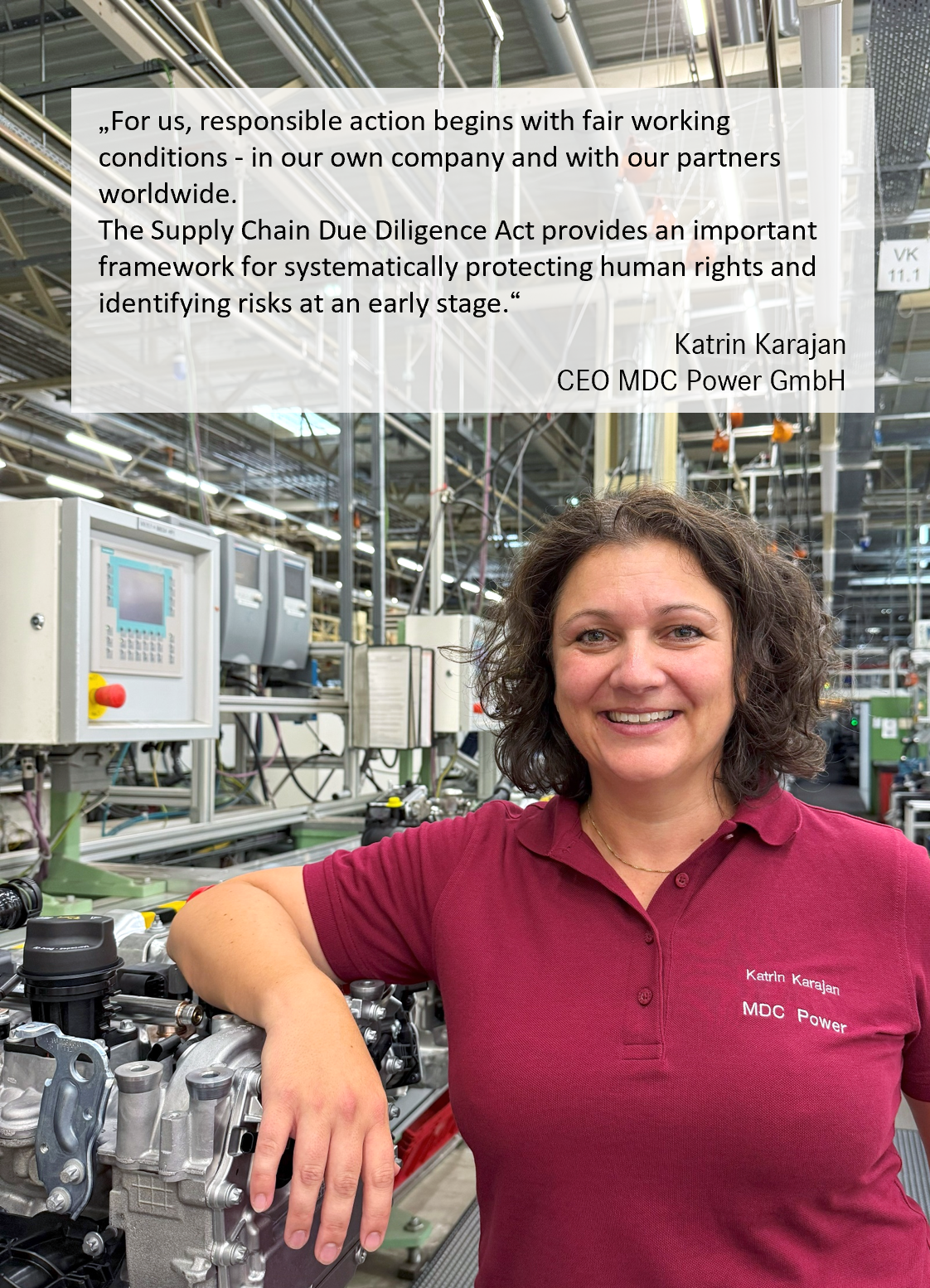HUMAN RIGHTS IN THE SUPPLY CHAIN
Respect for human rights is a fundamental component of responsible corporate governance at Mercedes-Benz. It is our aspiration and goal that human rights are respected in all our Group Companies and are also observed by our suppliers.
We want our products to contain only raw materials and materials that have been mined and produced without violating human rights and environmental standards.

THE SUPPLY CHAIN DUE DILIGENCE ACT
The German Supply Chain Due Diligence Act regulates corporate responsibility for compliance with human rights in global supply chains. This includes, for example, protection against child labor, the right to fair wages and environmental protection. On January 1, 2024, the Supply Chain Act will come into force for companies with at least 1,000 employees - and therefore also for the MDC Power GmbH.
The law strengthens human rights and environmental protection in global supply chains. It obliges companies in Germany to respect human rights by implementing defined due diligence obligations. These obligations apply to the company's own business operations, the actions of a contractual partner and the actions of other (indirect) suppliers.
The "Principles of Social Responsibility and Human Rights" serves as a binding basis for the implementation of human rights due diligence obligations within the Mercedes-Benz Group. The Declaration is binding for all managers and employees of the Mercedes-Benz Group worldwide. In the Declaration of Principles, the Mercedes-Benz Group undertakes to prevent, minimize or, as far as possible, eliminate negative impacts on human rights within its business activities and business relationships worldwide. The declaration supplements and specifies the requirements for compliance with human rights from our Integrity Code.
The Principles of Social Responsibility and Human Rights and further information on the Supply Chain Act can be found at the following links:
Principles of Social Responsibility and Human Rights
Human rights in the supply chain
We use a wide range of measures and concepts to manage our supply chain sustainably. These include various supplier screenings, risk-based due diligence analyses and sustainability training for suppliers. In addition to compliance with social standards and environmental regulations, this also enables us to achieve greater transparency in the supply chain.
Companies are obliged to set up a complaint’s mechanism for whistleblowers in the event of potential violations of the requirements of the law. The BPO (Business & People Protection Office) whistleblower system is available for this purpose at the following link:
Whistleblower System Business & People Protection Office (BPO)